Attendees at our first Virtual Crowd Summit experienced an international panel of speakers discussing and sharing how crowdsourcing-led techniques and models can help organisations. Help them to not only face up to the economic and operational implications of the current disruption but also the transformations that will be required to operate successfully in the “new normal” post-pandemic environment.
It has been said that the first two weeks of lockdown in the UK, which is where I attended the summit, did more to accelerate take-up of communication technology among general practitioner doctors than anything and everything in the previous 20 years. Many small businesses that had remained resiliently techno-phobic have adopted 100% remote working to stay in business, and face the management issues it involves all at once. Retailers that had been slow to develop ecommerce were faced with a do-or-die scenario, and so the list goes on.
Right now, change is dramatic and necessary, it’s not an option. As the final speaker on the day reminded us, COVID-19 has exposed the companies that have been slow to adopt change – including digitisation, social media or ecommerce.
Session 1: How to Navigate the New Economy During and After COVID-19
The pandemic has crystallised a transition of the internet from providing information to providing capabilities. In his introduction to VCS2020 our CEO Epi Ludvik spoke of a change of emphasis from an Internet of Things to an Internet of Skills. The first speaker, Don Tapscott, spoke on a very broad basis of the developing second era of the internet.
Up to now, most people use the internet to get information, and then they go to a middleman, a facilitator, to make something happen for them. Though through immutable blockchain technology, we can start to take more of these actions ourselves, directly and safely.
What’s needed first is “trust in the system,” and integrity is the foundation of trust: the expectation that people and processes will behave with integrity, and do “the right thing.”
Trust also requires transparency, privacy and censorship. All there are related, though different. Transparency includes organisations clearly demonstrating their integrity through tangible indicators. Will companies that want our business protect our privacy as a human right and a foundation of freedom, and keep it free from hacking and commercial exploitation? Censorship, when organisations prevent people expressing their point of view, should be resisted.
Against Don’s backcloth, Joanne Celens, CEO of Synthetron in the Netherlands, narrowed down on how crowdsourcing is being used increasingly by many types of organisations to generate ideas and solutions faster and on a wider scale.
On the topic of change, Joanne said it is apparent the balance of power is changing, and the crowd can often grasp it better than those at the top of organisations. Crowd-generated solutions can thus come with a greater level of ‘customer’ pre-acceptance than those generated internally within an organisation, that can’t help having an unavoidable deference to a company mindset.
Crowdsourcing is excellent for achieving aims faster and more cost-consciously. And many organisations are going to need to find solutions and implement them fast, whether that’s while working a way through or climbing out the other side of the pandemic.
In replying to questions, Joanne denied that crowdsourcing makes employees feel under threat. Quite the reverse, in fact. It helps many of them to be more confident about making a more conspicuous contribution to their employer.
Karen Cahn is founder and CEO of IFundWomen, which focuses on helping women entrepreneurs start their own businesses. Crowdsourcing platforms have been invaluable to connect startups with mentors, and also with the crowdsourcing of money – crowdfunding.
Rewards crowdfunding has a vital role in checking proof of concept for a new product or service without startup founders going in to expensive debt. VCs increasingly accept crowdfunding success as a validation of business viability.
In a ‘new normal’ business environment, no business sector is going to be spared from innovative solutions and breakthroughs implemented faster than previously expected, said Rob Israch, CMO of automated payments firm Tipalti.
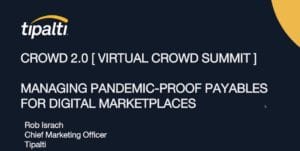 Right now is a time for all businesses to review their processes, he said, and repair any broken ones. Also, those that may be less appropriate for the post-COVID-19 era could not only slow their recovery but also actually damage stakeholder relationships.
Right now is a time for all businesses to review their processes, he said, and repair any broken ones. Also, those that may be less appropriate for the post-COVID-19 era could not only slow their recovery but also actually damage stakeholder relationships.
This is a particular risk where companies enjoy the benefits of accessing crowds of solution-providers in the gig-economy. Contributors could be in different countries, operating under different tax regulations, and with a requirement to be paid in different currencies. Payables are a touchpoint with stakeholders, often a sensitive one. To maintain access to receptive crowds and boost their enthusiasm, it is important to avoid delays, discrepancies, and anything else that will waste time – for the payees and the payers.Turning to Tipalti to handle it makes sense once a business gets beyond 100 payments a month.
Session 2: Practical Insights in to Staying Ahead in the Innovation Game
In this session we heard from some outstanding users and designers of crowdsourcing challenges.
At NASA HQ, Amy Kaminski has overseen using crowdsourcing prize challenges to resolve many issues. This has included developing 3D printing capabilities to create everything and anything in extra-terrestrial environments from equipment spare parts to even buildings.
Over 5,000 solution providers responded to the Space Poop Challenge, a vital personal waste disposal process for astronauts who for any reason have to stay in their space suits for days on end. Some of the lessons learned in resolving space travel challenges have been transferable to planet Earth.
CEO of prize challenge platform HeroX, Christian Cotichini, told us economic recessions are the best times for innovation at any level: circumstances demand it, and markets are receptive to it. Recessions are a tremendous opportunity for anyone with the courage to lean forward and make a difference in the world.
He substantiated this through reference to several respected books on the subject that are now added to the Crowdsourcing Week Book Club, if they weren’t already there. In the meantime, Christian’s whistle stop tour of advice for people who want to innovate included the following:
- It is critically important that you understand your cognitive biases.
- Triple the ideas that you create.
- The greatest benefit of daily journaling is that it makes you think about thinking.
- Do not let negativity drag you down.
- Challenge, and question, and let your mind wander – you will find ideas flow.
- Innovation is a mindset: to help inspire colleagues to innovate, particularly when working remotely and connections are through technology, begin regular meetings with good news.
The theme of how a leader can bring about innovation was continued by Jessica Nordlander, CEO of Thought Exchange and named Sweden’s most innovative leader in 2019.
A good leader of an innovation process may not necessarily be that much of an innovator – though they can certainly unlock other people’s power to innovate. Jessica used Maslow’s “hierarchy of needs” model as a springboard to assess what’s needed to best unlock employees’ ability to innovate, especially when many people are working remotely.
Importantly, it’s far better to be a Crowd Leader than a loud leader!
Session 3: Utilizing Crowdsourcing to Humanize AI
The final speakers, Divyabh Mishra of CrowdAnalytix, and Amir Haramaty of SparkBeyond, showed us how AI has helped many businesses to arrive at crowdsourced solutions.
There are situations where a human brain still makes better decisions, particularly where there are several different aspects of an issue to weigh up. Though on an increasing number of occasions, the pace of change and the volume of data that needs to be processed is beyond the human brain’s capacity.
A specific example was a clothing retailer trying to determine the combination of key factors that determined high sales for its lines. Cut? Colour? Cloth? Buttons, zips or velcro? Sales data was available to match images of many hundreds of garments, and based on human assessment of each garments’ visual attributes the retailer had previously been able to create five or six sales projection models a year.
To use AI required details of each image to be put in to words, which was itself a major crowdsourcing project. Analysis of sales figures against any combination of garment attributes could then be automated through AI looking for patterns. The client was ultimately able to use up to 30 product/sales projection models a year.
In another project, detailed AI analysis of more aspects of prisoner demographics and previous behaviour than could be humanly processed brought about a significant change of cell mate pairings in a New York prison. The level of violence between inmates dropped 40%. Even so, in some instances the natural instinct of a warder with forty plus years’ experience was allowed to overrule the AI decisions.
The rationale behind this is that major tasks have to be broken down in to a series of smaller ones to apply AI within sometimes quite narrow areas of expertise and data analytics. If this means there’s any aspect that hasn’t been covered through setting up an AI-based analysis to begin with, human familiarity with a situation still seems able to sniff it out.
There was a final question on the day: what are the most vulnerable post-COVID businesses? Amir Haramaty replied with Darwin’s comment, that survival goes not to the biggest or the strongest, but to the most agile. So the most vulnerable businesses are the least agile ones.
So stay on your toes to reap the most benefits while transforming to the post-pandemic ‘new normal.’

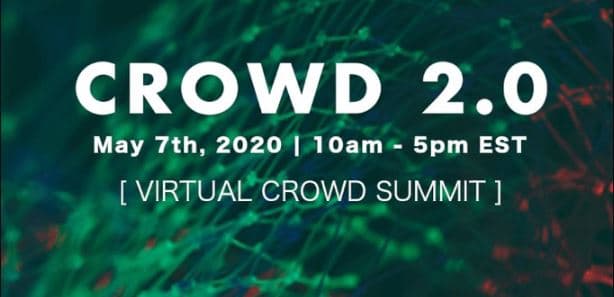


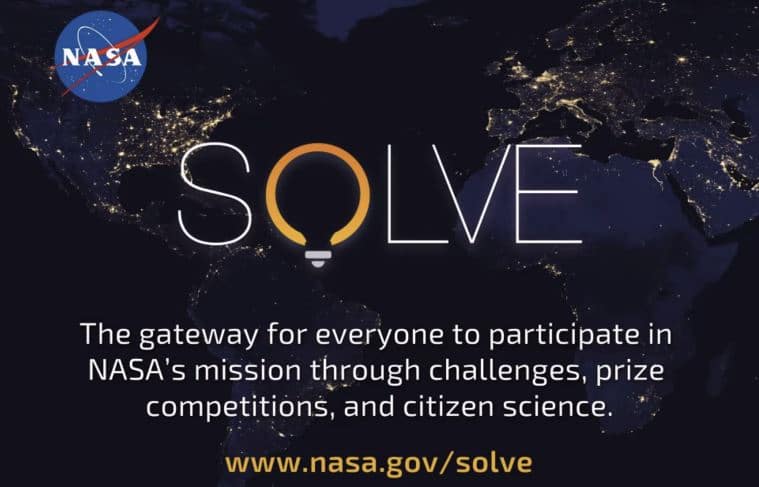

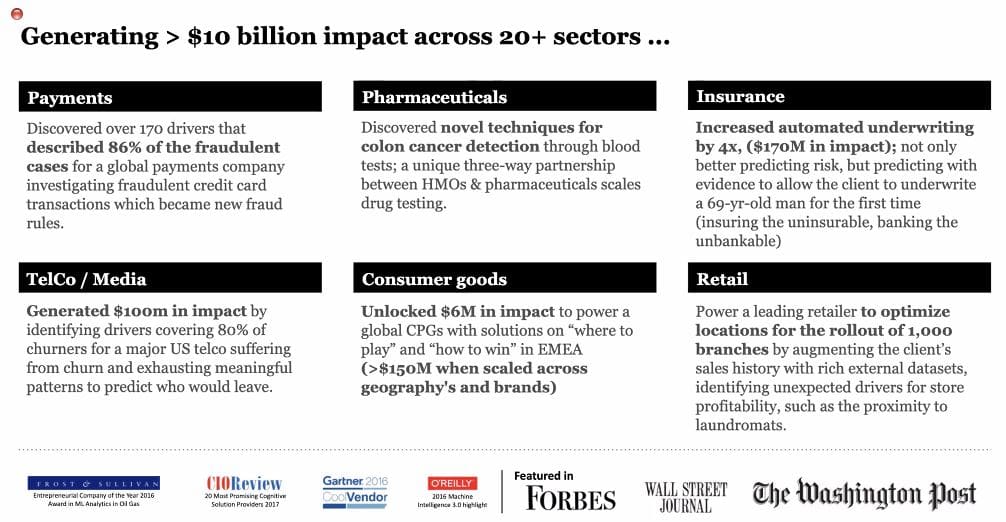

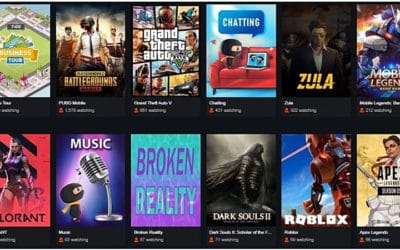
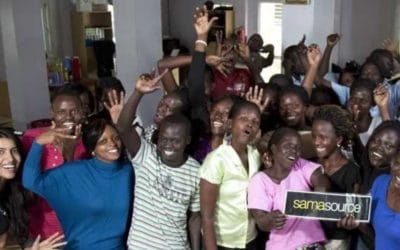
A great summary of fantastic virtual event with awesome global presentations and participation.